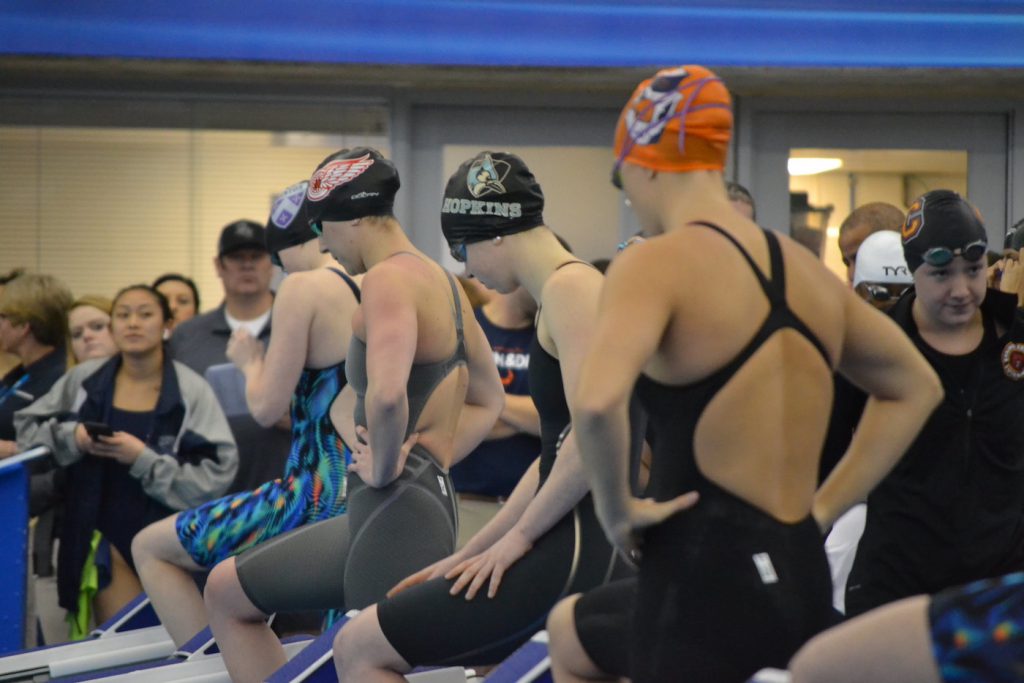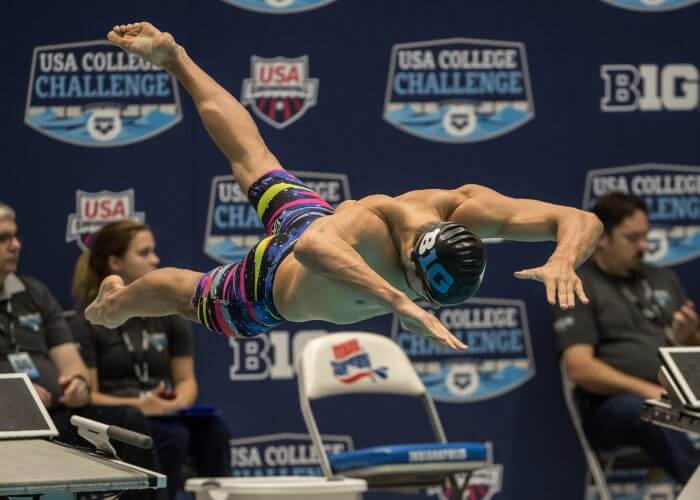12 Questions You Should Ask During College Recruiting Process

12 Questions You Should Ask During College Recruiting Process
By Ashley Illenye (Archive)
Each year, high school seniors must make one of the biggest decisions of their young adult lives: Where they will spend the next four years of their lives and educations. Recruiting trips primarily decide where swimmers will head, but there is a process put in place before they even step foot on campus.
The college recruiter, typically a member of the coaching staff, has the responsibility to entice the swimmer into taking a trip by framing the school in the best possible light. It’s the duty of the swimmer to ask the right questions to know if the school in question is the right fit.
Here are some of the questions that should be asked.
Questions About Academics:

Photo Courtesy: Courtney Collett
How big is the university?
Schools like Bucknell have about 3,500 kids, which is as big as some high schools. Texas A&M University has about 58,500 students, which could fill Yankee Stadium. If you’re looking for a small, tight knit college experience or never want to see the same face on campus twice, you’ll want the coach you’re communicating with to tell you if you’ll find what your looking for in said institution.
What is the teacher/student ratio?
A 15-1 student/teacher ratio is considered small, so most classes would range from 20-40 students with big lecture-hall-type classes being a rarity. If you’re looking for that 100-200 people per class, aim for a school with a larger population and more disproportionate ratio.
How will I receive academic support as a student-athlete?
Some schools offer greater support, such as academic advisors who cater to student-athletes, fellow student-athletes serving as tutors and mandatory study hall hours. There are other resources that may be offered by your university of choice that are available to non-athletes.
How is the program for my major/Do they have my major?
Some majors vary by school. For instance, one school may offer Political Science while another offers Government. While this might not be a deal breaker, if your school has a weak liberal arts program and is more known for engineering or business, that might be. At the end of four years, students are coming out with a degree that will decide their future career path.
What is the team GPA?
Are you expecting to contribute to the team GPA? Is there a certain limit you don’t want to be under? Do you want to be on a team that’s NCAA swimming recognized? Team GPA is one attribute that tells prospective students how the team values academics.
Questions About Swimming:

Photo Courtesy: Peter H. Bick
How do you think I would fit in on the team?
There’s about three spaces that you could fit on a given team. There’s the bottom, which is hoping that you can earn a scoring spot after hard work over a few years. There’s the middle, where you could be closer to the top in your best events and closer to the bottom in the rest. Then, there’s the top of the pack. Whatever you’re comfortable with going into your first year is hopefully where the recruiter tells you you’ll be contributing.
Do I have a chance of making the conference team?
Conferences can have about 20 spots available for championship meets. Two or three divers may take spots. To some, not making the conference team might be a deal breaker. To others, it’s something to strive toward.
If I didn’t make conference champs, what would my end of the season meet be?
There are several options for swimmers that are outside the 20 or so athletes that are selected to compete in their respective conference championships. Some conferences, like the Atlantic 10, allow schools to bring several swimmers outside the ones that score points. Others go to another invitational.
What type of training do you focus on?
Is the head coach at the school you’re communicating with known for developing exceptional 200 butterfliers? Does the distance program produce consistent A finalists at conferences? Has the 400 free relay gone undefeated for several years? Be aware of what the program offers in terms of your strengths.
Questions About Finances:
How much is the average financial aid package?
The fact is, students do go to school for the academics and athletics, but one of the main questions, particularly from their parents, is affordability. It’s rare for a student to receive a full ride, so they should know how much the school usually gives middle income families.
Are there athletic scholarships available, and if so do I qualify for one?
Division III, Ivy League schools and select other institutions don’t give out athletic scholarships. However, there are even more schools that do offer scholarships. As finances are an important question, don’t feel shy about investigating potential scholarship opportunities.
What are my chances of getting an academic scholarship?
Schools usually have a system based off SAT scores, GPA or both to decide who qualifies for an academic scholarship. These three questions about finances round out letting a student know if the school in question is affordable for them and their family.
All commentaries are the opinion of the author and do not necessarily reflect the views of Swimming World Magazine nor its staff.




ltnc, thx for posting
#3, #9, and training and medical support are critical. Alicia Tiberino
Ben Garratt
Thz
Paula Garner
Ellie Masterson
Julie Ann Smith
Erin
Sofia MaynezRebecca Maynez
Lincoln Hardy
how easy is it to become a walk on, without necessarily competing in big events, just training for your national(african) team
9198104587